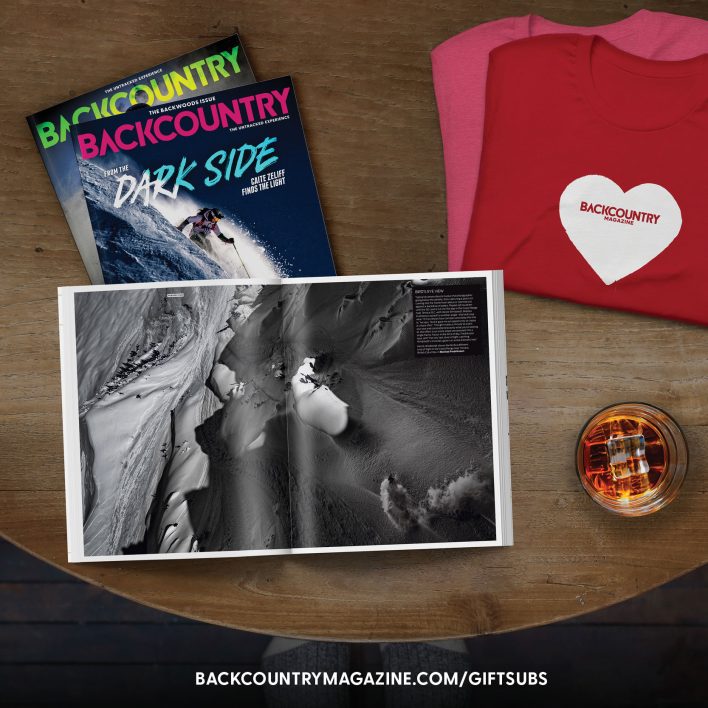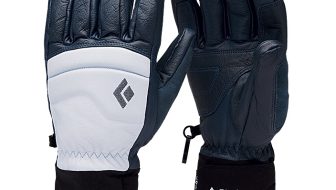At 21 years old, Rafael Pease has already started an international film festival. Pease, who grew up in Farellones, Chile, a small town in the mountains near Santiago, saw a community not capitalizing on its natural and cultural resources. And when he traveled to Boulder to attend the University of Colorado it hit him that the ski scene in Chile could share these resources through a grassroots, crowdsourced video contest.
So Pease founded the Flux Veho film festival. The name Flux Veho means “flow ride” in Latin or, colloquially, “go with the flow,” which is exactly what Pease is trying to do in his fast-paced entrepreneurial life. The competition-based festival brought in teams of three from around the world to make videos over a six-day period. Videos were limited to two minutes and were judged based on creativity, style, “balls”—yes, this was a category—and editing. Gracing the judge’s panel were sibling ski personalities Sole Diaz Muñoz and Chopo Diaz, longtime Freeskiing World Tour competitors. Also on the judge’s panel were Xabier Azcarate Del Valle, Roberta Irarrazaval, Thomas Santa Maria and Rafael Pease.
Twenty-three teams competed, and each video is uniquely captivating, providing a window not only into different ski styles but different ski cultures. Pease has given these small communities a voice and a reason to come together to celebrate a love of sliding on snow. We recently talked with Pease after he sucessfully hosted his first-ever film festival.
2015 FLUX VEHO FARELLONES, CHILE TEAM VIDEOS, FLUX VEHO on Vimeo.
Backcountry Magazine: What inspired you to start a film festival?
Rafael Pease: I have lived in the Farellones region of Chile and I noticed that there was something missing in the community when comparing it to the States and to Europe. They have a lot more established here [in the States] event-wise with festivals and with mountain culture in general. In Chile, it is a bunch of foreigners; everyone is just doing their own thing. I want to do something to unite everyone.
BCM: How would you describe the ski film scene in South America?
RP: It doesn’t exists. But with the film festival I have motivated a lot of people to start similar things. I feel like, in the future now in South America, there are going to be many more small film festivals. Everyone is going to be working together to create more of an atmosphere of professionalism in the whole [ski and snowboard] industry.
BCM: What is the mission of Flux Veho?
RP: Flux Veho has an environmental mission because in Chile, as people know, there are the biggest open-pit mines in the world and the government is selling land to outside companies. I envision it as a way to unite people to hopefully get everyone behind the same cause and make a change.
The first year I did everything alone. It was pretty hard to get the whole environmental thing going this year, but in the future I want to make it more of an international environmental film festival where everyone shows their films for the reason of protecting the environment.
BCM: How does Flux Veho compare to Eye of the Condor—the Sony-sponsored, invite-only competition held at La Parva from 2011 to 2013—and what are some of the major differences?
RP: I helped guide TGR at the last Eye of the Condor, and I noticed that Eye of the Condor is very exclusive and more of a celebrity approach to an event because all six teams are invited. Flux Veho is open to people who have never learned how to ski or who have not been ski professionals their whole lives. I had people fly out who had never been on a mountain and there are videos about people taking lessons on how to snowboard. I also had people fly out from Europe and the States, so it is open to everyone. It is a super neutral competition platform.
BCM: What is the benefit to hosting a film festival with crowdsourced footage where anyone can enter and competitors use their own skill to put together an edit?
RP: I spent $12 on the whole thing. It benefits the [Chilean] community because it helps build the whole tourism aspect. It makes Chileans feel important and realize that fun things can happen. It gets everyone excited for the next year. Everyone who competed and the ones who didn’t compete this year, they are already saving money for better cameras, better skis, better gear, which will help make better videos. I feel like it all revolves around the community because it will bring more people in and help build the economy of Farellones in Chile. There are so many really good skiers there that really just never had the opportunity to show what they can do, and this will be there first chance.
BCM: How did the El Niño cycle affect Flux Veho’s first year?
RP: I had a lot of issues getting everyone to sign up because there was only one snowstorm before registration and only 30cm fell. Four days before filming began the huge storm that dumped eight to 10 feet. I think since the snowfall was late for the deadline a lot of people did not sign up due to lack of snow. Once the snow began the crowds did show up.
I skied every day while I was there. I am working on a couple videos of my own. I was just enjoying riding the pow. In Chile, this was a historic snowstorm. Every year it snows about two to four meters for a few days and this year we had four to five meters in five or less days.
BCM: More skiers are beginning to understand what there is for backcountry terrain in Chile. How much footage would you say is shot in the Chilean backcountry?
RP: Chile is really interesting because most of the country is mountains and the world only knows about a few of the mountains. So this is pushing people to go further and explore and go deeper into the Andes region of South America and to get more into the backcountry scene.
BCM: What are your plans for the future of the film festival?
RP: I am trying to do a film festival in Chur, Switzerland in March and one in Aspen, Colorado in April. I want to emphasize the environmental side of things in those two locations. People are more ready for the environmental approach in Europe and in the States. In Chile, it is hard because I have to create the festival culture, mountain culture, environmental culture. I mean it already exists but not as a whole; it is all individual people with ideas.
BCM: What does Flux Veho mean?
RP: Flux Veho means flow ride in Latin. What it means for me is to go with the flow of life and be respectful to the mountains and environment and just enjoy everything. It has its own meaning for everyone.
See the full selection of submissions at fluxveho.com.










Related posts: